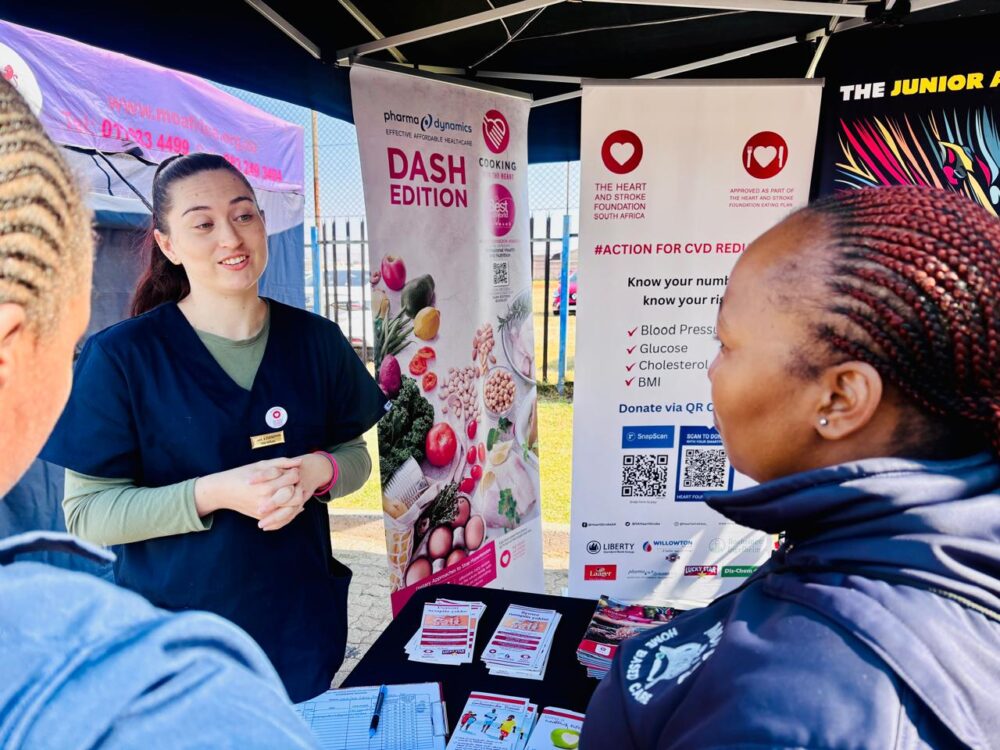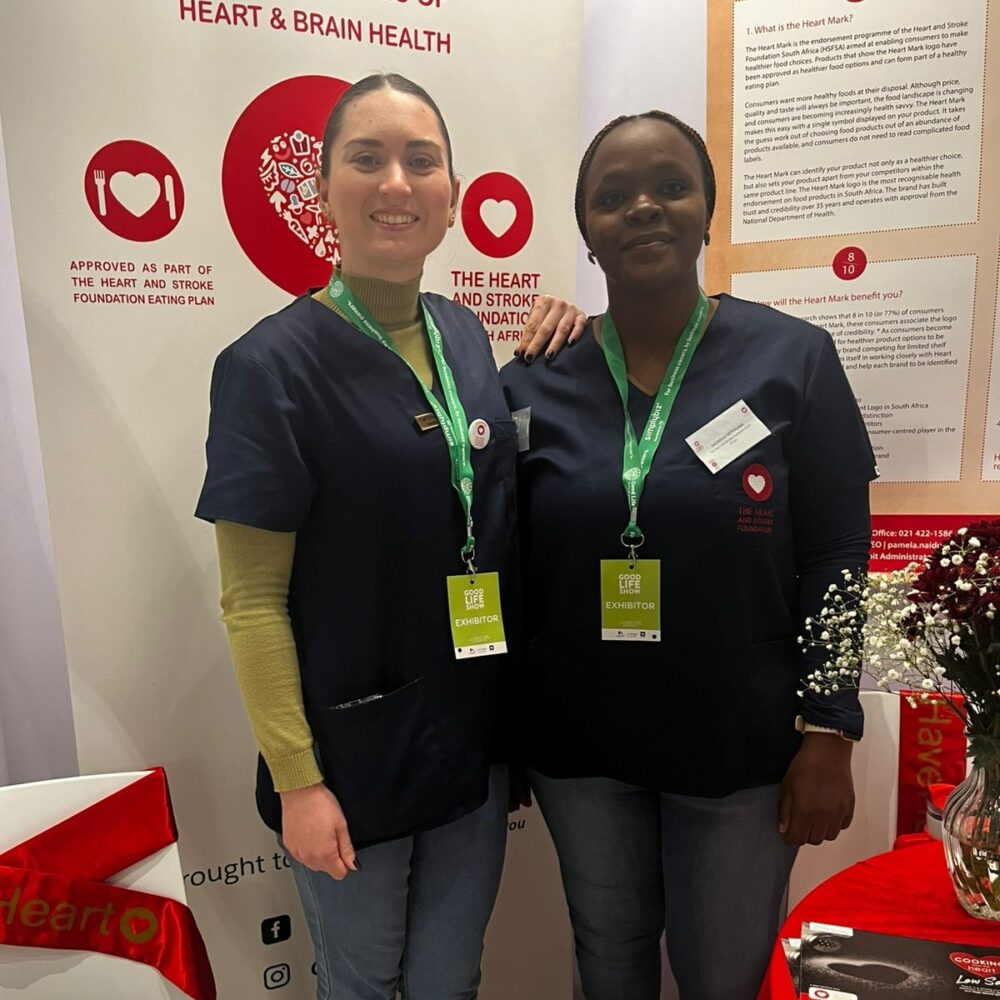
The Heart and Stroke Foundation South Africa (HSFSA) is gearing up for Heart Awareness Month (HAM) this September, shining a spotlight on the alarming reality of the raised burden of cardiovascular disease (CVD) in the country. According to the World Heart Federation, South Africa reported 98,605 CVD deaths in 2021, highlighting the urgent need for sustained prevention and management efforts to combat one of the nation’s leading causes of death and disability. The HSFSA is committed to reducing the mortality and morbidity rates associated with CVD, and through its awareness campaigns, aims to educate the public on the importance of heart health and the simple yet effective measures that can be taken to prevent CVD, such as addressing preventable risk factors like hypertension, diabetes, poor nutrition , and physical inactivity. This year’s HAM campaign will focus on key themes, including the burden of cardiovascular disease, cardiothoracic interventions, the multidisciplinary team before and after surgery, and cumulative risk factors, and will culminate on World Heart Day (September 29) with the global theme “Don’t Miss a Beat”, developed by theWHF and its membership. The HSFSA is one of the global members of the WHF.
According to the World Health Organization, CVD accounts for approximately 32% of global deaths, with 85% due to heart attacks and strokes. Over 75% of these deaths occur in low- and middle-income countries (LMICs). In 2021, CVD was responsible for 38% of all premature deaths caused by NCDs. Women experience heart disease differently from men and are often underdiagnosed. Hormonal shifts, menopause, Polycystic Ovary Syndrome (PCOS), oral contraceptives, and pregnancy complications all increase women’s lifetime CVD risk. Symptoms like nausea, fatigue, or back pain can mask underlying cardiac conditions. South African statistics reveal that Asians, including those of South Asian origins , Black African as well as Black African women, have the highest CVD death rates. Contributing factors include socioeconomic disparities, limited healthcare access, and genetic predispositions. Despite the high burden, women are less likely to receive timely interventions and often face worse surgical outcomes. South Africa is classified as a middle-income country.
Globally, over 1 million children in LMICs are born annually with congenital heart defects, with 90% lacking access to proper care. Cardiac surgical access remains inequitable, with far fewer procedures in LMICs than high-income countries. Environmental issues such as climate change and limited access to healthy food in LMICs also exacerbate CVD risk, underscoring the need for systemic solutions.
CVD is driven by both modifiable and non-modifiable risk factors that often accumulate over time. These include hypertension, high cholesterol, diabetes, obesity, smoking, inactivity, poor diet, chronic stress, alcohol consumption, and genetics. The combined effect of multiple risk factors significantly increases the likelihood of heart disease. Data from the HSFSA shows that 26% of South Africans are overweight and 48% obese, with 68% having abnormal blood pressure readings. These figures highlight widespread risk and the urgency for early intervention. Addressing one risk factor alone is insufficient; comprehensive prevention strategies are needed to tackle the total risk profile. On the positive side , 80% of premature heart attacks and strokes can be prevented through the uptake of healthy behaviours such as regular physical activity, a balanced diet, and avoiding tobacco and alcohol. Prevention requires sustained effort from individuals, clinicians, and policymakers. Evidence-based strategies, informed by accurate data and strong surveillance systems, are vital to combat misinformation and guide effective public health initiatives.

Cardiothoracic surgery treats severe heart and lung conditions when medication or non-invasive treatments are insufficient. These surgeries include bypass procedures, heart valve repairs, and transplants. Cardiothoracic interventions restore blood flow, alleviate chest pain, and improve quality of life. In South Africa, the pathway to surgery typically starts at a primary clinic or with a general practitioner, followed by referral to a cardiologist, and eventually to a cardiothoracic surgeon if needed. Cardiothoracic surgery can be life-saving but is complex and resource-intensive. While the first heart transplant was performed in South Africa by Dr. Christian Barnard in 1967, current transplant rates remain low due to infrastructure limitations and donor shortages. Globally, 90% of heart transplants occur in the U.S. and Western Europe.
Professor Pamela Naidoo, CEO of the HSFSA, calls for more research and innovation in cardiac treatment to meet growing needs of cardiothoracic interventions. Optimal care for cardiothoracic surgery patients requires collaboration among cardiologists, surgeons, anesthesiologists, nurses, dietitians, psychologists, and therapists. Pre-surgery, the team evaluates the patient’s health and prepares them for the procedure. Education on smoking cessation, nutrition, and lifestyle is critical at this stage, as behaviours like smoking significantly increase surgical complications. After surgery, recovery is managed by rehabilitation teams including physiotherapists, occupational therapists, nurses and dietitians. Cardiac rehabilitation improves outcomes but is underused. Rehabilitation and early mobilization, supported by technology like telemedicine, can enhance patient recovery and reduce readmission.
Nutrition plays a vital role, especially given that up to 70% of cardiac surgery patients suffer from malnutrition, which worsens recovery outcomes. Dietitians help tailor plans to meet nutritional needs and improve healing. Emphasis is placed on a Mediterranean-style diet, rich in fruits, vegetables, lean protein, and healthy fats, which supports heart health. Nutrients like omega-3s and antioxidants may also reduce inflammation and promote recovery. Mental health support is equally crucial. Psychologists help patients manage anxiety, depression, and stress, all of which can impact recovery. Nurses provide hands-on care, assist with mobility, monitor for complications, and offer vital emotional support to patients and families. Throughout this care process, it is important to educate patients about healthy behaviors and offer support to ensure the best possible outcome.
As HAM continues, the HSFSA urges South Africans to recognize the importance of prevention, early detection, and equitable access to care. Through collective action, public education, and healthcare innovation, we can reduce the burden of cardiovascular disease and build a healthier future for all.The HSFSA emphasizes the importance of registering as an organ donor to increase accessibility to life-saving procedures for those in need.
The Foundation welcomes anyone to contact us looking for more information about heart diseases, strokes and healthy behavior modifications at 021 422 1586 or www.heartfoundation.co.za.